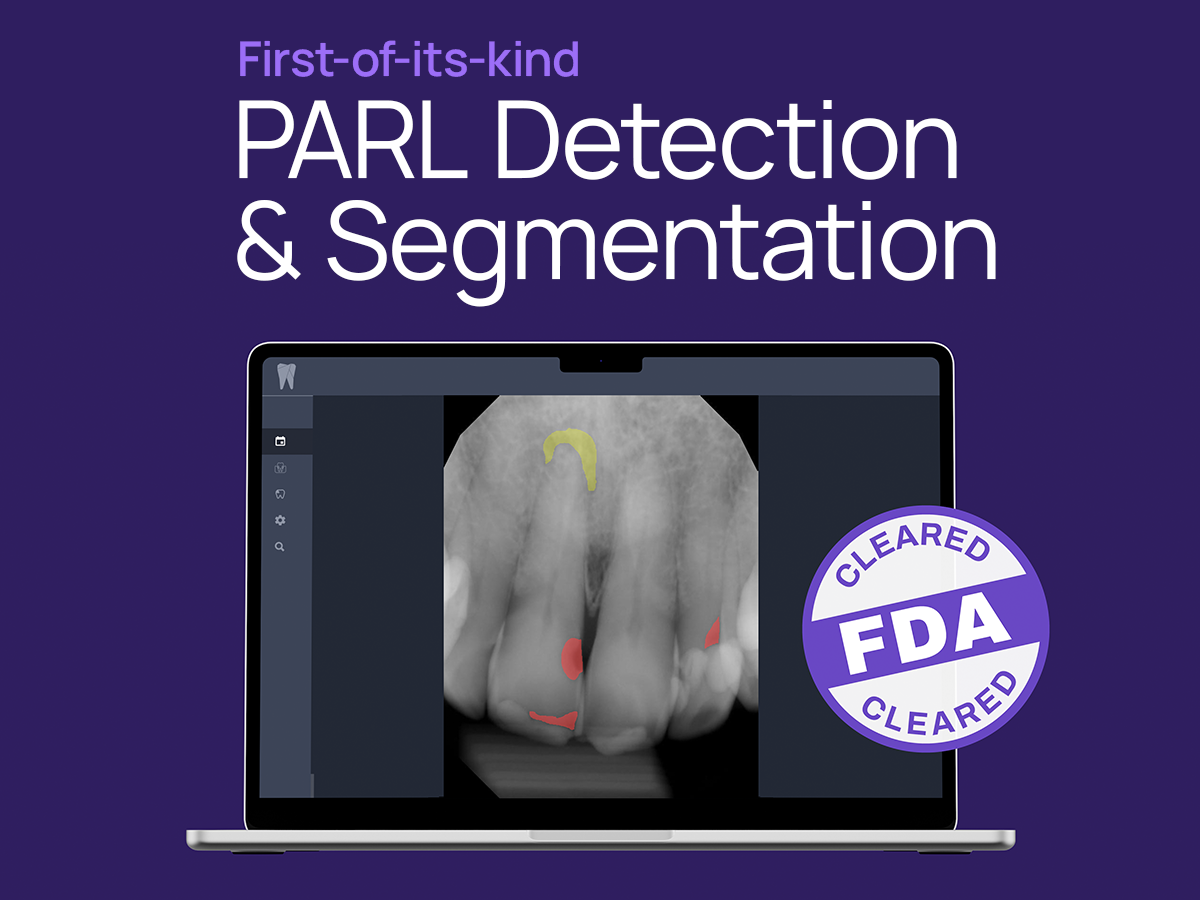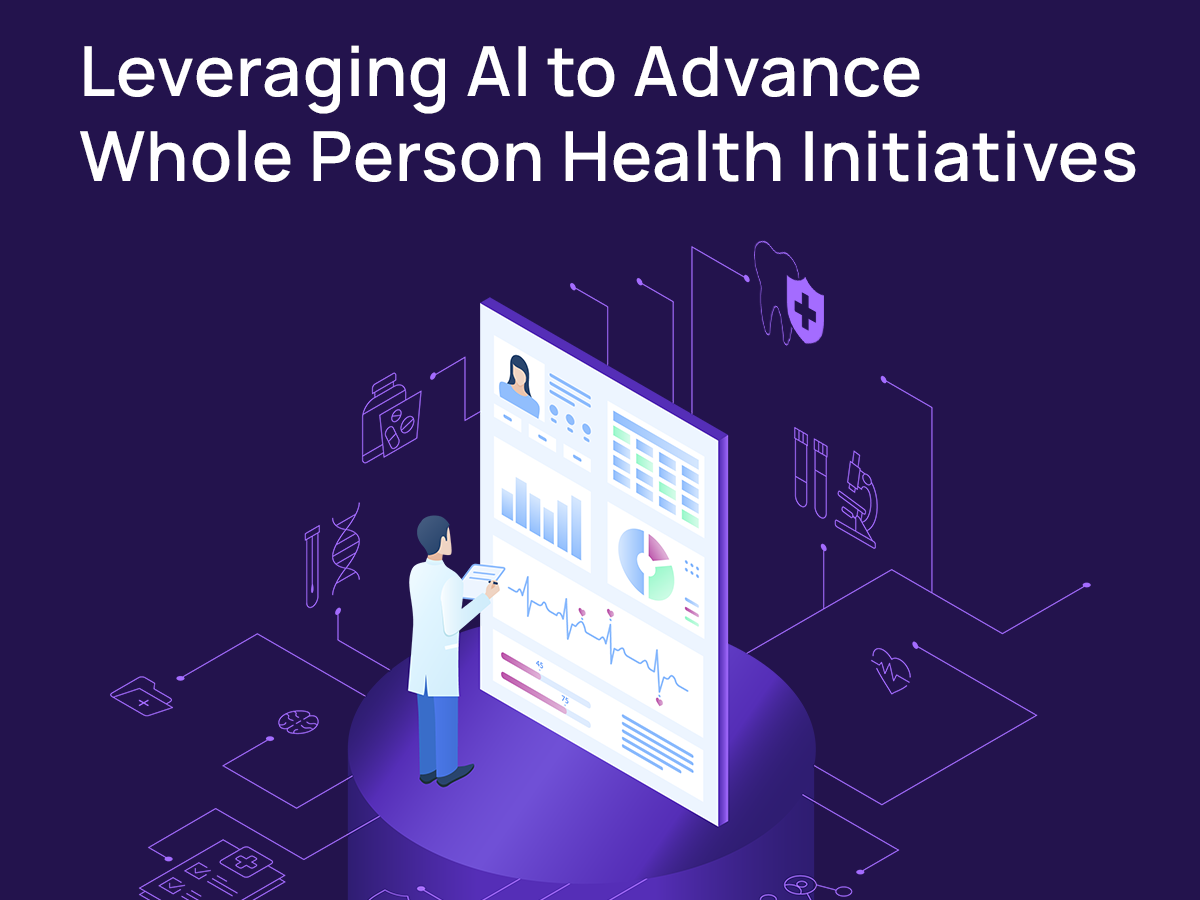“Transformative.” What follows the use of that word often involves some form of innovation.
Such would apply to the impact of AI (Artificial or Augmented Intelligence) on clinical excellence and patient outcomes in dentistry.
DSOs recognize the breakthrough value of technology. AI is positioned to gain more attention as top DSO leaders adapt it to their business and clinical processes.
- Informative clinical insights for practice affiliations
- Improved post-affiliation onboarding
- Increased standard of care support and compliance across the organization
- Upgraded practice performance utilizing visualization tools for dentist support and associate development
These are front-line to what AI brings to pace-setting DSOs. Before we focus on its impact on clinical excellence and patient outcomes let’s clarify artificial intelligence technology.
A day in the life of AI (inside and outside dentistry)
Artificial intelligence is ingrained in daily life. Transportation, marketing/advertising, finance, e-commerce, media, and healthcare embrace it.
Think content suggestions on streaming services (e.g. Netflix, Prime, etc), photo recognition tags on social media, predictive text recognition, online searches, smart device voice recognition, or health data via a wearable device.
And now dentistry…
According to Robert A. Faiella, D.M.D., provider of AI services to dental practices and insurance companies,
“The adoption and implementation of augmented intelligence within the dental profession is poised to be a transformative technology in dental care delivery,…AI is just a technology, but if we create the desire for functionality, it is more than the technology alone; it connects us to a wider world of information and options.” [1]
That “desire for functionality” is how dentists have embraced technology innovations through the years. Consider how new norms have evolved around practice management software, digital imaging, and data analysis.
AI aligns with those among other innovations. And leading DSOs will adopt its transformative potential for patient care and organizational workflows.
How AI impacts clinical excellence and patient outcomes for DSOs
Risk assessment and affiliation value
A surface level chart audit reveals merely one cross-section of a practice’s patient care standards. Dental AI probes much deeper to provide a broader and more revealing perspective into a practice’s business and clinical “DNA.”
AI enlarges your scope of assessment for potential affiliations. The technology “zooms-in” on key qualifiers such as:
- Talking points for ongoing, strategic conversations
- Assessing risk prior to energy or financial investments
- Opportunity potential post-affiliation
AI algorithms and analytics helps sharpen your vision. You have more available information to see what the future holds pending the affiliation agreement.
- Onboarding expectations to align clinical and business teams
- Patient-centric insights for more informed care protocols
The more you qualify in advance of an affiliation the better your post-affiliation success. AI creates a somewhat standardized perspective on clinical, business, and patient-centric data vital to your affiliation process.
Unfiltered understanding of dental practice care standards
You’re perhaps aware that organizational growth increases leadership scope. Data flow to your supported practices is essential to monitoring, understanding, and improving their standard of care.
AI based data analysis helps keep your finger on the pulse of the practices in your organization. Increased awareness and practical understanding is a benefit of AI technology for your DSO.
- Track metrics relative to compliance, patient health histories, charting, and imaging.
- Provide notifications to instill best-practices around patient information, compliance, and more.
- Measure and track patient treatment outcomes to produce higher care standards.
Understanding within these metrics is further supported throughout your DSOs operational routines (e.g. desktop dashboards, weekly team reports, reviews and surveys, morning huddles, and EOD reports).
Enhanced technology appeal for dental graduates and owner dentists in transition
Graduating dentists are accustomed to a tech-rich environment. New technology and care applications are consistent with their training.
DSOs who embrace and adopt new technology, such as AI, could be more attractive to new or transitioning dental professionals.
- Dental AI aligns with other new, emerging technologies including 3D-printing, CAD/CAM, and guided implant surgery.
- New and transitioning dentists can keep pace with technology innovations (like AI) and its care and workflow enhancements.
- AI streamlines treatment planning, patient communication, and related clinical outcomes for equipped dentists.
DSOs have the ability to scale technology, including AI, for the benefit of their supported dentists. Their patient experience improves through the organization’s embrace of new, available technology.
The transformative qualities of AI for dentistry can be traceable to DSOs who recognize its value. Dental AI will join other accepted technologies as a driver of clinical excellence and positive patient outcomes.
Get acquainted with the AI experience alongside a technology leader among the largest DSOs and insurance companies
Overjet is the global leader in dental artificial intelligence, helping both payers and providers improve patient care. Founded by experts from MIT and Harvard School of Dental Medicine.
Overjet has assembled the largest and most seasoned team of technologists and domain experts with deep AI, dental, and insurance experience.
[1] https://www.ada.org/publications/ada-news/2021/july/augmented-intelligence-the-future-of-dentistry











